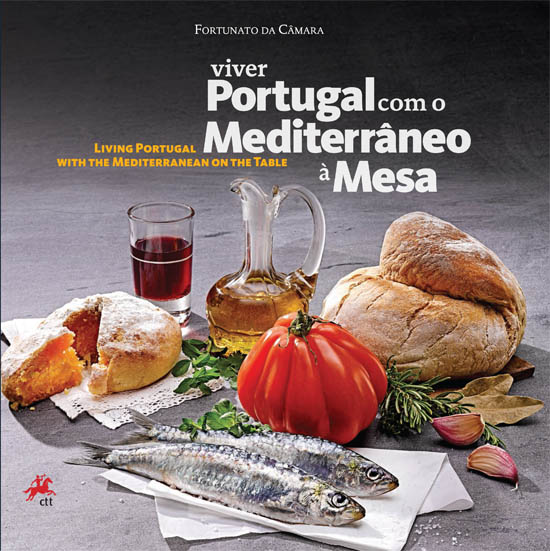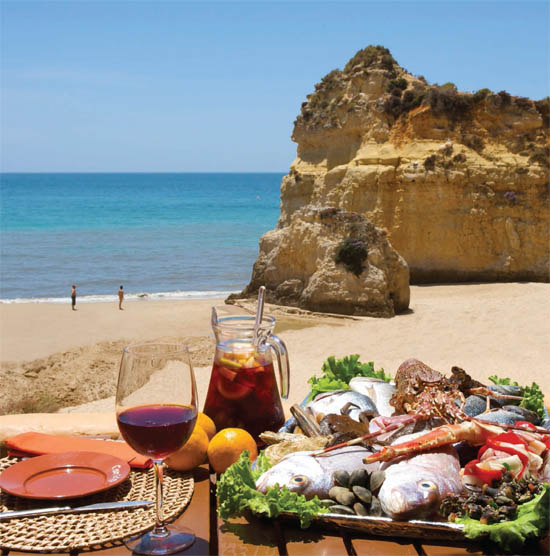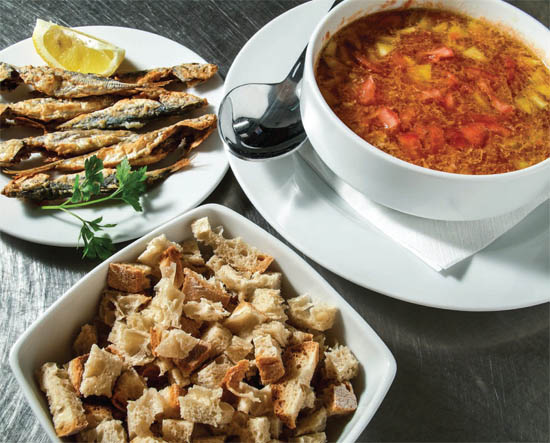 CTT Correios de Portugal presents the book “Living Portugal with the Mediterranean at the table”, which seeks to answer the question: “But is there Mediterranean on our plate?”.
CTT Correios de Portugal presents the book “Living Portugal with the Mediterranean at the table”, which seeks to answer the question: “But is there Mediterranean on our plate?”.
«The author of this book, Fortunato Câmara, believes that we have the necessary coordinates to embark on the complex journey of finding a Mediterranean meaning for the Portuguese table», emphasizes CTT.
As is customary in CTT editions, this book contains stamps that result from philatelic issues already produced: two stamps from the 100 Years of Demarcated Regions issue (2008); six stamps issued by O Azeite (2008); two stamps issued by the Portuguese Traditional Bread issue (2009,2010); and also four stamps and a philatelic block from one of the July issues, the Mediterranean Diet.
The entire country is represented in this book and the seals it includes. The latter include purslane soup, marinated horse mackerel, chickpea stew with pears, sweet potato bread, octopus stew, muscat from Setúbal, Alentejo bread and Algarve bread, as well as culture associated with olive oil, which runs through our territory. The gastronomic culture of the Arabs and Romans is remembered, as are the first recipes registered with Portugal as a nation.
In addition to the historical and geographical framework, the book includes traditional recipes, in Portuguese and English, contributing to the dissemination of our gastronomic legacy abroad, at a time when the country receives a growing number of tourists.
The Mediterranean Sea is the dynamizer of a set of civilizational practices and habits with a centuries-old trace and extends its influence to the food of the peoples of southern Europe and North Africa.
 The essence of the true “Mediterranean Diet” is, therefore, in the history of the populations who have the privilege of having this sea in between and, much more than a “food regime”, it is a modus vivendi.
The essence of the true “Mediterranean Diet” is, therefore, in the history of the populations who have the privilege of having this sea in between and, much more than a “food regime”, it is a modus vivendi.
Despite not being bathed by the Mediterranean and with a distinctly Atlantic cuisine, it is precisely because of the modus vivendi that Portugal is closer to Mediterranean culture
With a privileged berth in the Algarve, from where it leaves the sea to arrive in the Alentejo, as we get to know and understand the lifestyle of these two regions, we find that, in addition to bread, it is also in the heart that we find the other ingredient always present to “Living Portugal with the Mediterranean at the Table”.
The book prints 3700 copies and costs 38 euros each. The design was the responsibility of AF Atelier. It is a bilingual edition.
Who is Fortune Chamber?
 Fortunato Câmara was born in 1977 in Lisbon. He attended the course on Food Production in Restoration at the Estoril Hotel School.
Fortunato Câmara was born in 1977 in Lisbon. He attended the course on Food Production in Restoration at the Estoril Hotel School.
With the appearance of the weekly SOL in 2006, he started writing gastronomy by collaborating on the guide Essential as restaurant critic and food history chronicler until February 2011.
Between 2009 and 2011, he was the author of the radio rubric On the route of delicacies, weekly chronicle on the history of food on the radio SIM, by the Renascença group. In 2011, Food in the Taste of History – Recipes and Curiosities (Colares Editora) was distinguished in the Gourmand World Cookbooks Awards as the best of Portugal in 2011 in the «Culinary History» category.
That same year, he was admitted to the Institut des Hautes Études du Goût in France where he obtained the Diploma Universitaire du Goût, de la Gastronomie et des Arts de la Table, a postgraduate degree specializing in gastronomy, organized in partnership with the University of Reims and the cooking school Le Cordon Bleu of Paris.
Also in 2011, he started to collaborate with the magazine Fugue, from the newspaper Public, starting to sign the gastronomic review in March 2012.
In 2013, he published the book The Mysteries of the Abbot of Priscus and Other Curious and Delicious Stories of Gastronomy (Sphere of Books), which that year was awarded the prize Gastronomic Literature from the Portuguese Academy of Gastronomy, and which was considered the best book in Portugal in the «Food Literature» category, in the Gourmand World Cookbook Awards 2013.
In 2013, he was invited by Institut des Hautes Études du Goût to be one of the trainers at the University of Reims where he teaches a masterclass in gastronomic review at the Diplôme Universitaire du Goût, de la Gastronomy et des Arts de la Table.
Since January 2015, he has been the weekly newspaper's food critic Espresso.


















Comments